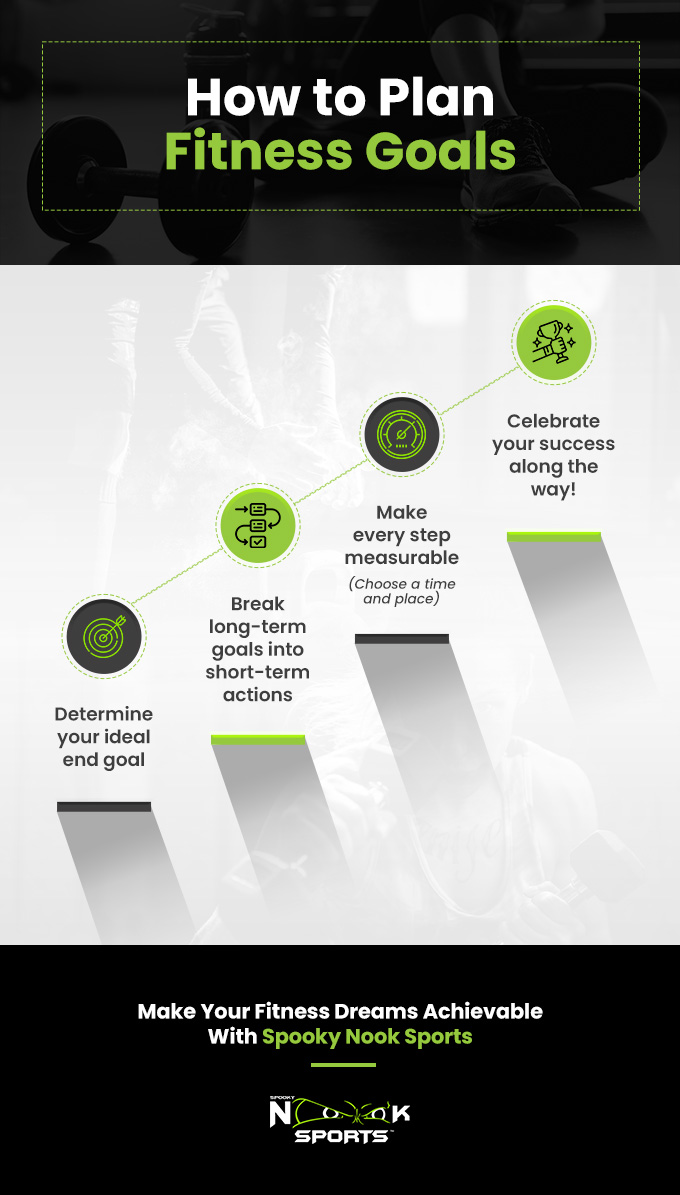The Bench Team Chronicle
Insightful news and updates from the world of sports and teamwork.
Fitness Goals That Make You Question Your Life Choices
Discover outrageous fitness goals that will make you rethink everything! Are you ready to push your limits and redefine your journey?
Are Your Fitness Goals Too Ambitious? The Fine Line Between Motivation and Madness
Setting fitness goals is essential for achieving a healthier lifestyle, but there's a fine line between ambition and unrealistic expectations. When you aim too high without considering your current fitness level, you risk encountering setbacks that can demotivate you. For instance, if you're a beginner and you set a goal to run a marathon in three months, you may find the process overwhelming and frustrating. Instead, focus on incremental targets—like running a 5K first—which can provide you with a sense of accomplishment and keep you motivated.
On the other hand, having motivating fitness goals is crucial. Goals should challenge you, but they must also remain achievable and relevant to your lifestyle. It’s important to periodically review and adjust your objectives based on your progress. Consider adopting the SMART criteria—Specific, Measurable, Achievable, Relevant, Time-bound—to ensure your goals drive you without pushing you towards madness. Remember, a healthy approach to fitness is not just about pushing limits; it’s about finding a sustainable balance that allows you to pursue your passions safely.

5 Fitness Goals That Will Make You Rethink Your Priorities
When it comes to fitness, many individuals set goals that are often centered around weight loss or muscle gain. However, redefining your fitness goals can lead to a more holistic approach to health. Here are 5 fitness goals that might just make you rethink your priorities:
- Improve Your Mental Health: Prioritizing mental wellness through exercise can be transformative. Activities such as yoga or meditation not only build physical strength but also promote clarity and emotional stability.
- Focus on Functional Fitness: Instead of just lifting weights, aim for exercises that improve your daily movements and activities. This can enhance your quality of life significantly.
- Prioritize Recovery: Setting a goal to focus on rest and recovery is crucial. Incorporating rest days and understanding your body's needs can be just as important as a rigorous workout routine.
- Build Community: Engaging in group classes or fitness communities can provide motivation and accountability, turning fitness from a solitary task into a shared journey.
- Track Progress Through Non-Scale Victories: Shift your focus away from the number on the scale and celebrate improvements in endurance, strength, and overall well-being instead.
Why Setting Unrealistic Fitness Goals Might Be the Worst Decision You Ever Make
Setting unrealistic fitness goals can often lead to disappointment and frustration. When expectations are too high, individuals may find themselves struggling to meet their targets, resulting in a lack of motivation. For example, aiming to lose a significant amount of weight in an extremely short period might cause people to resort to unhealthy practices, such as extreme dieting or overtraining. This can not only harm physical health but also negatively impact mental well-being, making the journey to fitness feel more like a punishment than a rewarding experience.
Moreover, unrealistic fitness goals can create a cycle of failure and self-doubt. Instead of celebrating small victories and progress, individuals may focus solely on their unreachable ideals. This can diminish their self-esteem and create an unhealthy relationship with fitness. To cultivate a more positive and sustainable approach to health, it's essential to set realistic and achievable goals, allowing for flexibility and adjustments along the way. Remember, fitness is a lifelong journey, and enjoying the process is just as important as the destination.